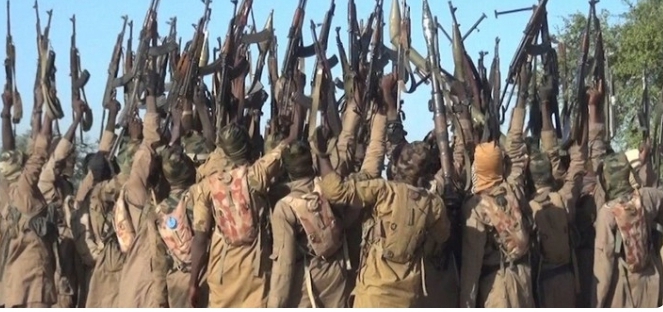In a harrowing revelation, a recent report from Nigeria Watch has laid bare the distressing toll of lethal violence in Nigeria throughout the year 2022.
This grim account exposes the deep-seated issues plaguing the nation, particularly in its northern territories.
The report discloses that a staggering 15,245 lives were tragically lost to violent incidents in Nigeria in 2022 alone.
This represents a distressing increase from the previous year, where the death toll stood at 13,537.
These numbers are undeniably alarming and emphasize the urgent need for solutions.
The northern region of Nigeria bore the brunt of this violence, with a disproportionate share of the casualties.
Borno State, in particular, emerged as the epicenter of this grim reality, reporting the highest number of fatalities, totaling 2,921 lives lost.
Furthermore, it recorded the highest relative number of deaths per 100,000 population, standing at a chilling 41.08.
Other states such as Niger, Zamfara, Kaduna, and Katsina also found themselves on the list of the five most dangerous states in Nigeria, painting a bleak picture of security challenges in these regions.
Despite a slight decrease in fatalities related to crime from 7,527 deaths in 2021 to 7,031 in 2022, criminal activities continued to ravage many communities, especially in the northern areas.
Rural banditry and mass kidnappings remained persistent threats, perpetuating the cycle of violence and insecurity.
In 2022, clashes between farmers and herdsmen erupted across 24 Nigerian states and the Federal Capital Territory, resulting in no less than 579 lives lost.
Benue, Enugu, and Plateau states recorded the highest number of casualties, underscoring the widespread nature of this issue.
It’s worth noting that criminal gangs and government security forces were involved in more lethal incidents than other protagonists of violence during this period.
Shockingly, 2022 saw more deaths due to road accidents in Nigeria compared to the previous year.
Ogun State remained at the forefront of this concerning statistic.
The high volume of traffic on key expressways, such as the Lagos-Ibadan and Lagos-Abeokuta routes, contributed to Ogun State’s persistently high rate of fatal traffic accidents.
Over-speeding, overloading, and traffic violations were identified as major contributors to these tragic accidents.
In the realm of criminal activities, Nigeria recorded approximately 7,031 lives lost in 2022.
The North West and North Central states were hit the hardest, with Zamfara, Kaduna, Niger, Plateau, and Katsina witnessing the highest number of fatalities.
Rural banditry remained a prevalent issue in these states, contrasting with the relatively lower impact on Yobe, Jigawa, Gombe, Ekiti, and Cross River states.
Terrorist organizations such as Boko Haram, the Islamic State West Africa Province (ISWAP), and Ansaru continued their attacks, leading to approximately 3,110 lives lost across nine states and the Federal Capital Territory.
Notably, Borno State remained the most affected, with multiple attempts by these groups to overrun parts of the FCT.
The report also sheds light on the increasing fatalities related to the Indigenous People of Biafra (IPOB) and its militia wing, the Eastern Security Network (ESN), particularly in the Southeast and South-South zones.
Anambra State reported the highest number of fatalities, with other states like Imo, Ebonyi, Enugu, Abia, and Delta also affected.
The report underscores the significance of addressing the underlying issues contributing to this violence, including displacement, security concerns, and the impact on communities.









